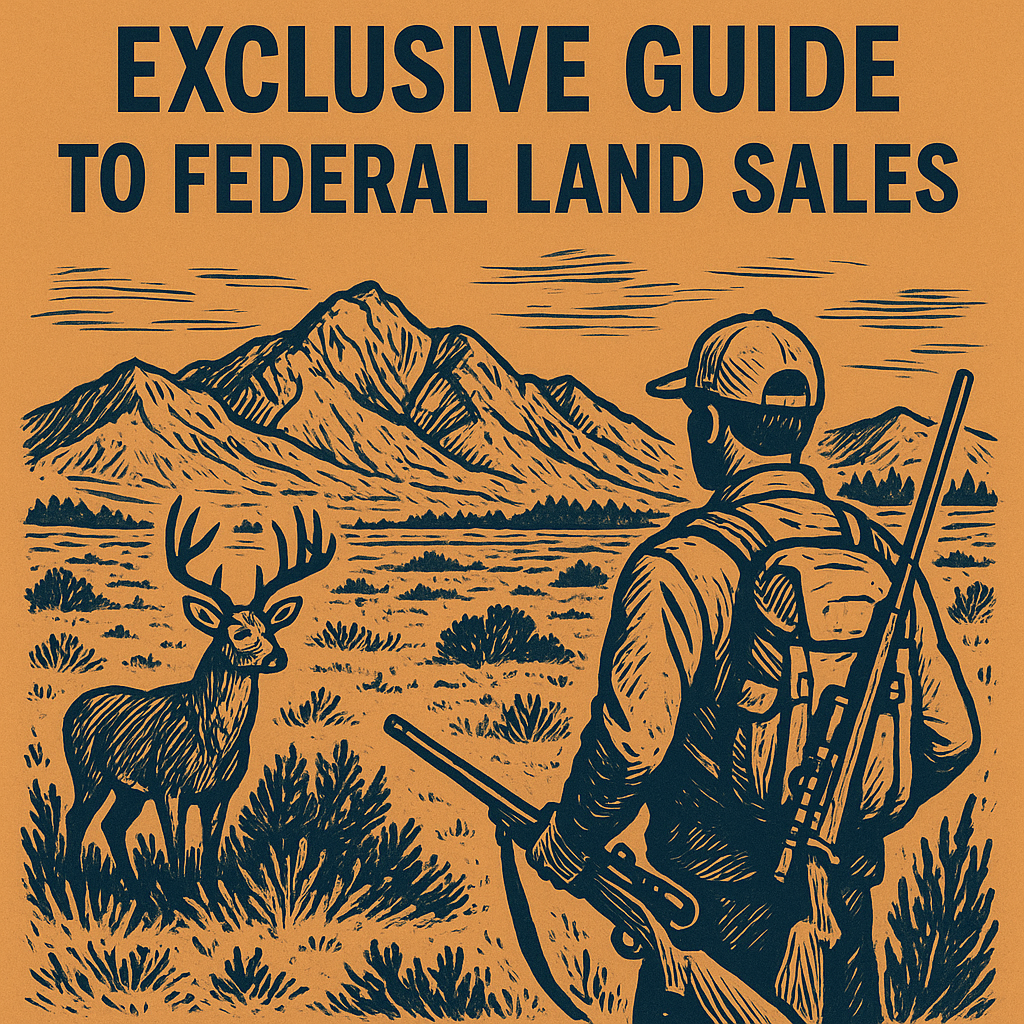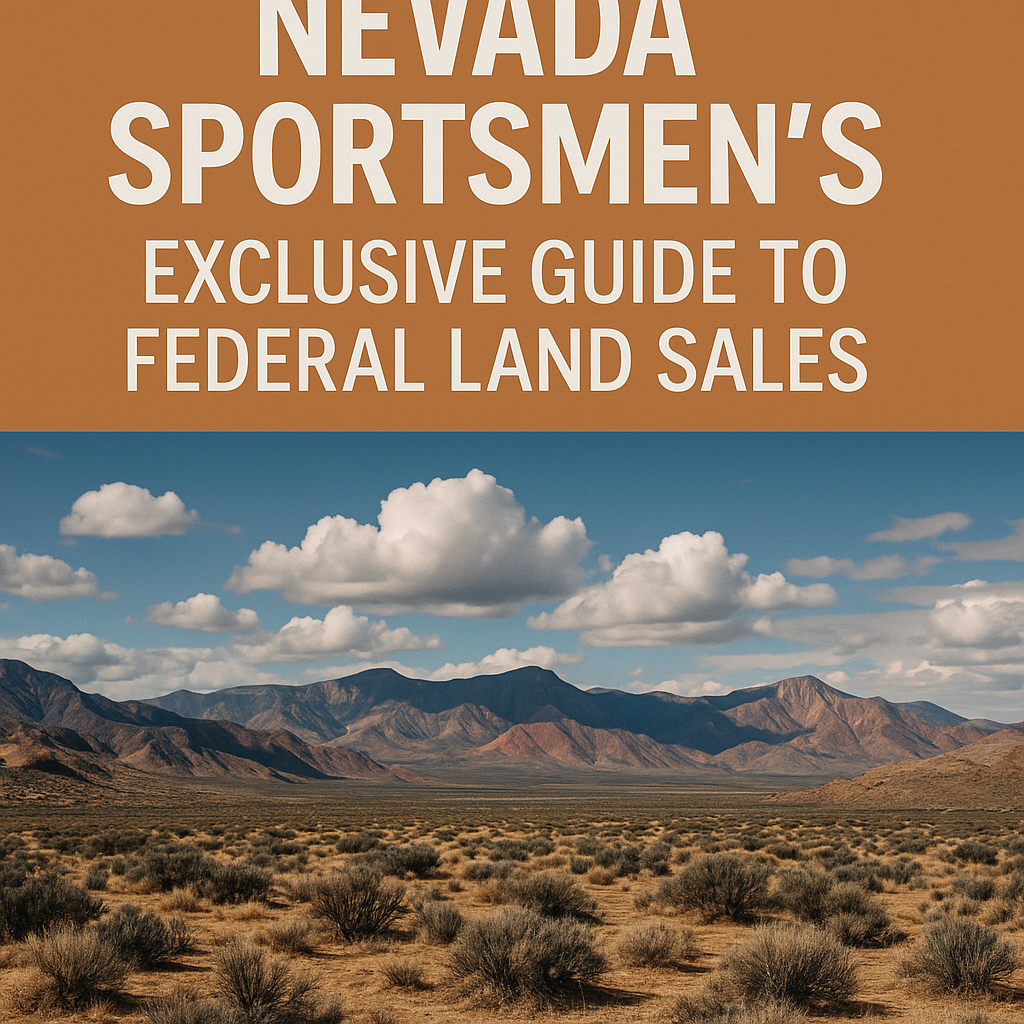Nevada Sportsmen’s Exclusive Guide to Federal Land Sales
Nevada Sportsmen’s Exclusive Guide to Federal Land Sales
Nevada sportsmen have been uniquely impacted by recent discussions surrounding federal land sales, sparking a multifaceted conversation about land ownership, wildlife habitat, and recreational opportunities. As the state grapples with the implications of selling federal lands, it’s essential to explore the perspectives and complexities associated with this contentious issue.
Understanding Federal Land Sales in Nevada

Federal lands make up a significant portion of Nevada’s geography, with nearly 85% controlled by the federal government. This unique situation raises important questions about the long-term effects of any potential land sales on the state’s natural resources and recreational spaces, particularly for sportsmen who rely heavily on these areas for hunting, fishing, and other outdoor activities.
The Pros and Cons of Selling Land
Proponents of federal land sales often argue that privatization could lead to better land management and increased economic development. According to a letter published in the Las Vegas Review-Journal, advocates express that local governments could benefit from an expanded tax base if lands return to private ownership. In this perspective, a shift to privatized land management might stimulate related industries and provide more tailored land use that reflects local needs.
Conversely, critics assert that selling off federal lands could lead to a loss of public access to vital recreational spaces. Many believe that the degradation of wildlife habitats and a decrease in outdoor opportunities could undermine the traditions of hunting and fishing that are integral to the state’s culture. A representative from a local sportsmen’s group cautions against any rush to privatize these lands, arguing that they are best managed for public benefit rather than profit.
Assessing the Impact on Wildlife and Recreation
The ramifications of federal land sales cannot be understated, especially concerning Nevada’s rich biodiversity. The state is home to a variety of habitats that support diverse wildlife species crucial for both ecosystem health and hunting opportunities. If these lands are sold off for development or other uses, the delicate balance of these ecosystems may be disrupted.
A report from local news sources emphasizes the importance of informed decision-making around land sales. The lack of structured oversight in private land management has raised alarms among environmentalists and sportsmen alike, who argue that mere economic goals should not overshadow environmental stewardship and public access rights. The sentiment among many is that when these lands are sold, the public good is often sacrificed, paving the way for unsustainable development.
Voices of Nevada’s Sportsmen
In light of these discussions, Nevada’s sporting community has taken an active role in advocating for public lands. Many sportsmen cite a strong historical connection to these landscapes, emphasizing that the rights to hunt, fish, and explore freely are ingrained in Nevada’s heritage. The importance of these rights has been magnified in local public forums, where residents express concerns about access restrictions and the potential threat to wildlife.
Moreover, the distinction regarding who benefits from federal land sales is noteworthy. When land ownership transfers from public to private hands, the question arises: Will it truly serve the community? Recent discussions bring to light the risk that valuable land could become exclusive real estate, limiting outdoor access for the general public.
Finding Balance: A Path Forward
As the discourse around federal land sales continues, finding a balanced approach is increasingly critical. Various stakeholders are urging local legislators to consider not only the economic implications of land sales but also the environmental and social impacts. A consensus appears to be forming among concerned citizens advocating for legislation that prioritizes public access and environmental sustainability over immediate financial gains.
Sportsmen groups, environmental organizations, and local governments need to engage in collaborative discussions to create a framework that protects vital public resources while considering economic development opportunities. Leveraging state resources and forming partnerships could provide a balanced path forward that respects both the land and its diverse users.
Conclusion
Navigating the complexities of federal land sales in Nevada requires a nuanced approach that recognizes the interconnections between land management, community well-being, and environmental health. Engaging scores of viewpoints—from advocates of privatization to champions of preservation—highlights the multifaceted nature of this issue. As Nevada sportsmen continue to voice their concerns and hopes for the future of federal lands, ongoing dialogue and responsible stewardship will be essential in ensuring that this state’s natural rich heritage is preserved for generations to come.





